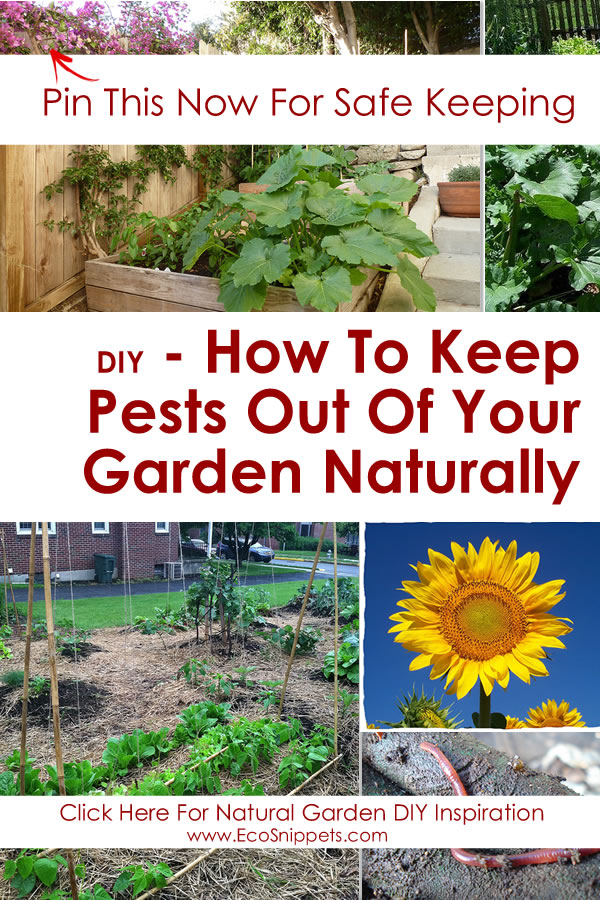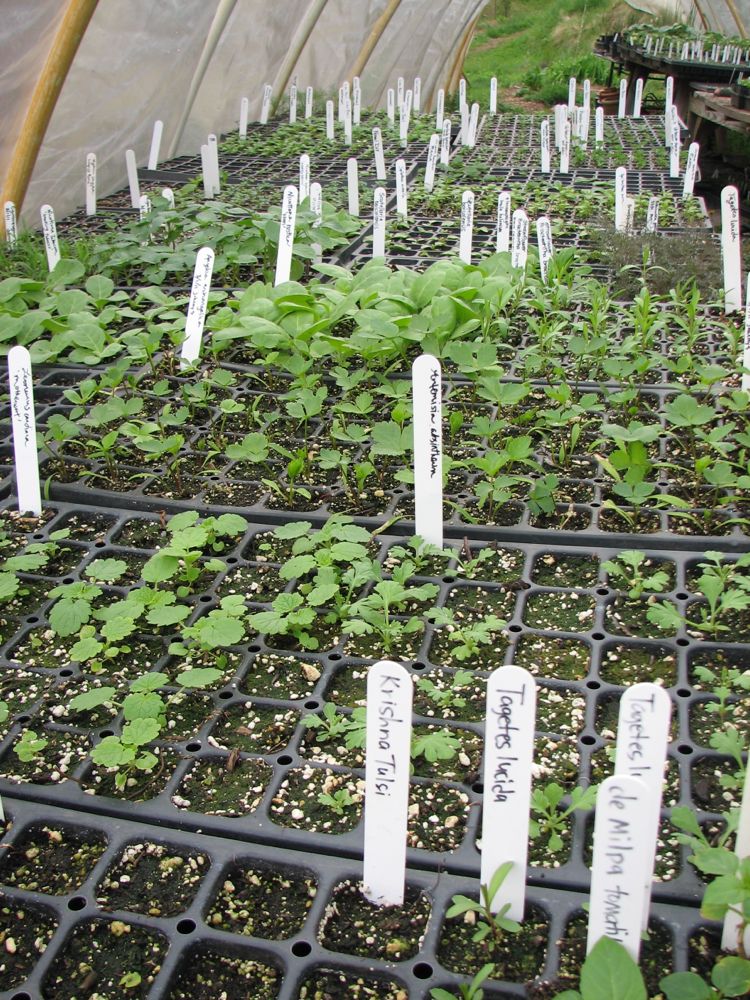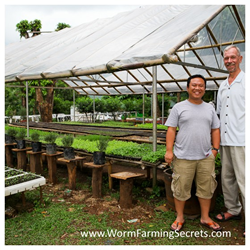Our friends over at Worm Farming Secrets sent us in these great little success stories from some of their newsletter readers.
These people are maintaining pest and disease control in their organic gardens using nothing but the power of worm composting.
You should get the basic understanding of what’s going on from the information below, but if you want more detailed information about how to do this yourself, you can click here once you’ve finished reading…

From Graham…
“We live in a Retirement Village and space is limited so it is not possible to have a compost heap. As an alternative, I started a worm farm in our garage four years ago and it has been a great success, largely due to Duncan Carver’s excellent newsletter.
I have not purchased any fertiliser, or bug spray, since then and our garden has never looked better or healthier. The leachate, diluted 20:1, is an excellent liquid fertiliser and foliar spray but I believe that the Worm Tea is even better.
I have three 25 litre buckets which go in rotation. I have an aquarium pump, half a litre of worm castings, weighted down in an old stocking, and two tablespoons of molasses, maturing for two days and then watered over any plants, or lawn, which require nourishment.
Having three buckets means that, before starting, the tap water has stood for four days which is sufficient time to allow the chlorine to dissipate. Our garden is small (about 600 square metres) and our vegetable peelings are quite sufficient to keep the system operating.
It seems to me that all my plants are much healthier than previously and the bugs, such as aphids and rust, no longer appear. If they did, I would simply apply a foliar spray of dilute leachate. My sincere thanks to Duncan Carver for his excellent advice.” ~ Graham Harington – Cape Town, South Africa
Pretty cool right? Organic gardening powered by nothing more than composting worms ;-0 If you want more in depth information about the process Graham is using, click here now.
From Beryl…
This came in from long time reader Beryl Saunders, coincidently, also from Cape Town (there seems to be a lot of smart people in Cape Town ;-0)…
“My worm farming input is similar to Graham Harrington’s account of his worm farming activities. I too live in a retirement village and have been worm faming in Cape Town for seven years in my garage.
I organized a party of about six friends to come and learn from an experienced lady worm farmer all about the benefits of breeding compost worms and recycling waste and how the products from the worms can be used without the need of any sprays for insects etc and of course the leachate and the compost derived from the worm farms.
I have the same formula for dilution and use of the leachate as well as the addition of the worm castings to normal compost at the rate of 20% castings to 80% compost. I also aerate casting for 24 hours in rain water (I collect) with the addition of molasses.
My worm farms have increased to quite a few mostly by using 25ltr black containers with lids. The worm population grew by leaps and bounds so much so that I began to advertise on a free web site to sell worms by the litre with some bedding, baby worms and cocoons. I estimated by count that there are 350 – 400 worms per litre.
The gist of my story is that I am handicapped and spend most of my time in a wheel chair. I have two wonderful carers who have become so interested in worm farming and who, under my direction feed and care for my worms to their benefit as they receive the cash from the sale of worms and leachate. Not only that, I gave them worm farms of their own and they reap benefits from the products and now have flourishing gardens of their own.
My own small vegetable garden is my pride and joy and the envy of others, is without the use of chemical sprays or fertilizers. I cannot understand why more people don’t start their own farms with one box even if they only have pot plants to care for. Most think its too much trouble even with once a week to ten day feeding. I gather most of the vegetable and fruit peelings as well as my own, from my friends for which they in turn are given now and again a litre of leachate for their plants!
I too would like to thank Duncan Carver for his weekly news letters that are really the best source of information on the internet. I have passed it on to many hoping they too will contribute by signing on to Worm Farming Secrets.” ~ Beryl Saunders, Cape Town
Again, all very cool stuff.
It’s always great to see people going down the environmentally friendly organic path. If you’d like more information about this subject, be sure to check out Worm Farming Secrets. It’s hands down the most informative authority site on the topic of using worm composting tea (and associated worm composting products) to help keep your gardening organic.
[one_half_first]
This Worm Composting Operation Is Producing 11k Liters Of Worm Poo Every 45 Days…
You might also be interested in checking out this worm composting operation that’s producing more than 11k liters of worm poo every 45 days. That’s a lot of worm poo to power your garden… check it out here.
[/one_half_first]
[one_half_last]


